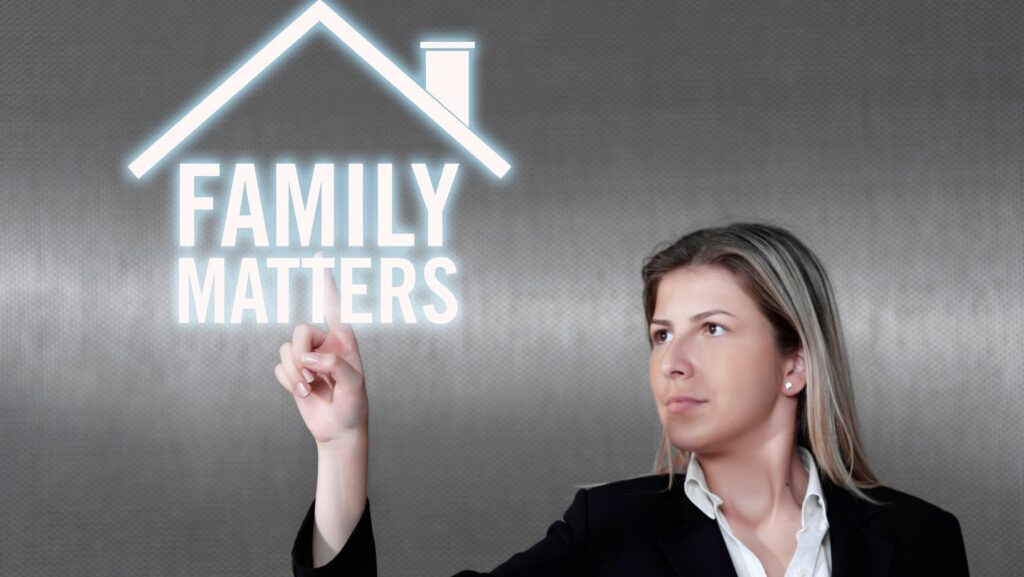The weight of a child custody case is immense. You’re not just navigating a legal process; you’re making decisions that will shape your child’s future and your relationship with them. In this high-stakes environment, the choice of a legal advocate can feel overwhelming, and it’s a decision that will have lasting consequences.
When navigating complex family matters, it’s crucial to have a clear understanding of your rights and responsibilities. Seeking professional guidance can provide clarity and peace of mind during these challenging times. If you find yourself overwhelmed or uncertain about the legal aspects of your situation, it may be beneficial to contact our legal team for assistance. They can offer expert advice tailored to your specific needs, ensuring that you make informed decisions that protect your interests and those of your loved ones. Remember, having the right support can make all the difference in achieving a positive outcome.
If you’re feeling this pressure, know that you are far from alone. There are approximately 12.9 million custodial parents in the United States, each of whom has navigated the complexities you now face. The key to moving forward with confidence is having a structured framework for making the most important hire of your life.
Key Takeaways
- Prioritize objective credentials like board certification in family law over general legal experience. This is a verifiable mark of advanced expertise.
- A lawyer’s deep familiarity with the Raleigh and Wake County court system, including its judges and procedures, is a significant strategic advantage.
- Use the initial consultation to assess not just their resume, but also their communication style and legal philosophy—do they favor settlement or litigation?
- Come prepared to discuss legal fees openly and be vigilant for red flags, such as a lawyer who guarantees a specific outcome.
The Foundational Criteria: What Truly Matters in a Custody Lawyer
When you start your search, you’ll be flooded with advertisements and websites. To find the right fit, you must first filter for the credentials that directly impact case outcomes. These foundational criteria separate the general practitioners from the true specialists.
Beyond Advertising: Why a Board-Certified Family Law Specialist is Your First Filter
Many attorneys practice family law, but only a small fraction are board-certified specialists. This isn’t just a marketing term; it’s an official designation from the North Carolina State Bar that signifies a lawyer has achieved a high level of expertise and experience in this specific area of law.
When navigating complex family dynamics, it’s crucial to have the right support system in place. This includes not only emotional support but also professional guidance. Consulting a family and estate law attorney in Florida can provide clarity and direction, ensuring that all legal aspects are handled with care and precision. Whether dealing with inheritance issues, guardianship, or other sensitive matters, having an expert by your side can alleviate stress and prevent potential conflicts. By taking proactive steps and seeking professional advice, families can focus on healing and maintaining harmony during challenging times.
The requirements are demanding. To earn this credential, an attorney must meet several rigorous standards, including dedicating at least 25% of their practice to family law, passing a comprehensive six-hour examination, and receiving positive reviews from their peers, including judges and other family law attorneys. This process ensures they possess a deep and current understanding of the nuances of custody litigation, negotiation, and child-related statutes.

Choosing a board-certified specialist means you are hiring an attorney whose knowledge has been tested and verified by the highest legal authority in the state. This level of focused expertise is why many parents decide that consulting with a specialist is the most critical first step. An initial meeting is your opportunity to ask pointed questions and determine if an attorney’s approach aligns with your family’s needs. For those ready to take that step, speaking with one of the board-certified Raleigh child custody lawyers can provide immediate clarity and a strategic path forward.
The Home-Field Advantage: Insist on a Lawyer with Deep Raleigh & Wake County Experience
A lawyer’s physical address may be in Raleigh, but that doesn’t automatically grant them the “home-field advantage” your case deserves. True local experience runs much deeper and is a critical strategic asset. A lawyer who regularly practices in the Wake County family court system brings invaluable insight to your case.
This familiarity means they understand:
Local Court Procedures: They know the specific administrative orders, filing requirements, and unwritten rules of the Wake County courthouse, which prevents procedural delays and missteps.
Judicial Tendencies: They have appeared before the local family court judges and have a sense of their temperaments, priorities, and how they tend to rule on specific issues.
Professional Relationships: An established local lawyer has a reputation among their peers and court staff. These working relationships can facilitate smoother negotiations and more productive communication with the opposing counsel.
This insider knowledge can lead to more efficient resolutions and more predictable outcomes, whether your case settles amicably or proceeds to a hearing.
Your Roadmap: The Initial Consultation Checklist
The initial consultation is your interview. This is your chance to look beyond a lawyer’s website and assess whether their experience, strategy, and communication style are the right fit for you and your family. Going in with a prepared list of questions will empower you to make an informed choice.
Questions to Uncover Their Experience and Approach
Your goal is to understand how their background translates to your specific needs. Move past generic questions and focus on tangible experience within Wake County.
Essential questions to ask include:
- What percentage of your practice is dedicated specifically to child custody cases in Wake County?
- Have you handled cases with complexities similar to mine (e.g., parental relocation, allegations of substance abuse, high-conflict co-parents)?
- Who will be my primary point of contact at the firm? Will I be working directly with you or an associate?
- What is your standard response time for client calls and emails?
- How will you keep me informed about the progress of my case?
Their answers will reveal not only their expertise but also their approach to client service and case management.
Assessing Legal Strategy: Is Their Goal to Fight or to Resolve?
Every custody case requires a unique strategy, but every lawyer has a general philosophy that guides their approach. Some attorneys build their reputation on being aggressive litigators, while others prioritize collaborative, settlement-focused methods. Understanding this distinction is crucial.
A “litigator” is prepared to argue fiercely in court, which can be necessary in highly contentious cases. However, an overly aggressive approach can sometimes escalate conflict and costs. A “settlement-focused” attorney prioritizes negotiation, mediation, and creative problem-solving to reach an agreement outside of court. This often protects children from the emotional toll of a prolonged battle and gives parents more control over the outcome.
The best family law attorneys are skilled at both but will always prioritize the path that is least contentious while fiercely protecting your child’s best interests. It’s also worth noting that many cases are resolved cooperatively; in fact, in over half (51%) of custody cases, parents agree on arrangements without needing a third party to decide for them.
To gauge their philosophy, ask directly:
- What is your general philosophy on settling custody cases versus taking them to trial?
- Based on the initial details of my situation, what do you see as the most likely path forward for my case?
Listen for a balanced answer that demonstrates a commitment to resolving conflict where possible but a readiness to litigate when necessary.
Practical Realities: Understanding Costs and Avoiding Red Flags
The practical aspects of hiring a lawyer—fees and professional conduct—are just as important as their legal skills. A transparent conversation about costs and a keen eye for warning signs will protect you from future stress and disappointment.
Demystifying Legal Fees and Billing Structures
Concerns about cost are normal and valid. A reputable attorney will welcome a direct conversation about their fees and be transparent about how you will be billed.
In family law, the most common structure involves:
- The Initial Retainer: This is an upfront fee you pay to the law firm, which is deposited into a trust account. The lawyer bills their time against this fund as they work on your case. It is not a flat fee for the entire case.
- The Hourly Rate: Each attorney, paralegal, and staff member has an hourly billing rate. You should receive a clear schedule of these rates.

To avoid surprises, ask for clarification:
- What is the initial retainer, and what work does it typically cover?
- What happens when the retainer is depleted?
- How are emails, phone calls, and other communications billed? Do you bill in six-minute increments or another standard?
A lawyer who is vague or hesitant to discuss fees should be a cause for concern. You need a partner who is as transparent about the financial investment as they are about legal strategy.


